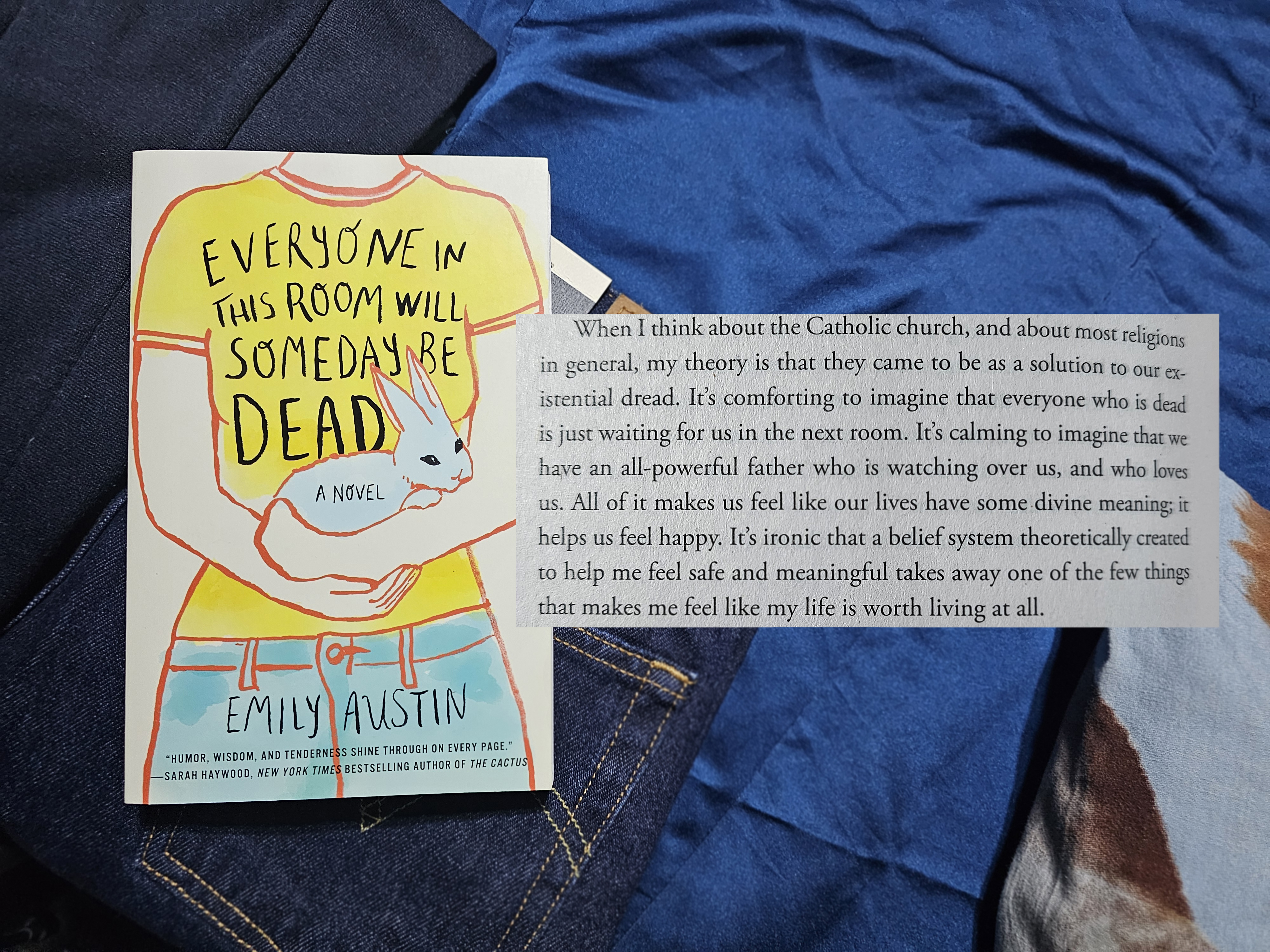"I hope my admittance of this sheds light on the fact that none of this has to be so bad."
Trigger Warning: Suicide, death, self-harm
By the title per se, you'll know this has themes about death. By the synopsis, you'll also figure the main character is thinking of harming themself and suicide. But as I finished this book, it gave me a different perspective about death, about (the) end(ing) (of) one's life. It's not toxic positivism or anything but looking at how others see life in its totality.
I was once told that another thought on why people commit suicide is not because they are sad or depressed. It's because they are done. They are fulfilled, and they no longer know or want to know what's next for them. They want to close their book because they already found their success or in Maslow's Hierarchy of Needs, they are already at the Self-actualization level already. It's either they are contented with it or they don't want to see that they might fall from the pedestal they are currently on. That might be hard to believe but what if, it's true?
I love this book. I love how it was written — it was as if I was reading someone's undated diary. The sequences sometimes don't match as they jump from one setting to another, from an old memory to the present — like how my brain immediately gallops from one thought to another. Each chapter title was also well-thought-out. They follow a certain flow, and how despite talking about and facing death, each will find their Easter. Like how Jesus rose again.
I think Austin and I will be friends. I saw myself in how Gilda talks, responds, and thinks. Though we have differences, when it comes to the gravity of things, there are a lot of similarities. Especially her thoughts about religion and her banters with herself and others (especially with herself. I keep on telling, This is something Thea will say or think in this same situation.)
"When I think about the Catholic church, and about most religions in general, my theory is that they came to be as a solution to our existential dread. It's comforting to imagine that everyone who is dead is just waiting for us in the next room. It's calming to imagine that we have an all-powerful father who is watching over us, and who loves us. All of it makes us feel like our lives have some divine meaning; it helps us feel happy. It's ironic that a belief system theoretically created to help me feel safe and meaningful takes away one of the few things that makes me feel like my life is worth living at all."
That "I think the crackers I stole are the body of Christ," is definitely something I will say. If you're religious, I know you wouldn't find it funny. But when I read this, I really found it hilarious. I was laughing at midnight with my lampshade sort of hurting my eyes with its glare.
As someone who has a hurting chest, starts to feel heavy, and feels suffocated every time she thinks about her own death, this book made me cry. And the part where I cried is something one can say mundane and anti-climactic but I think that's the beauty of this book. It doesn't complicate something complicated. No reading between the lines, no mental gymnastics. It just tells a story, a reality, that someday, every one of us will be dead.












Comments
What do you think, Awesome?